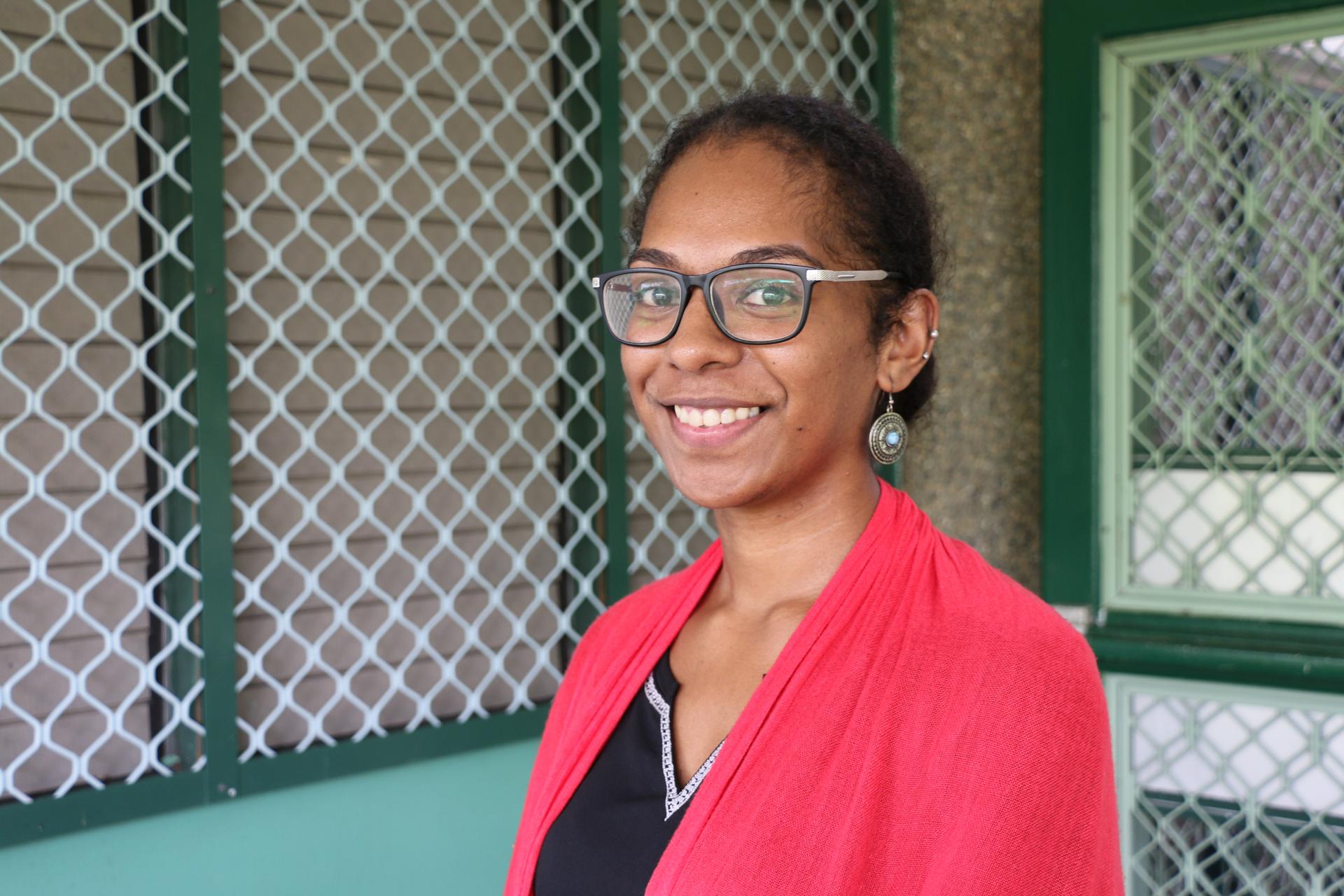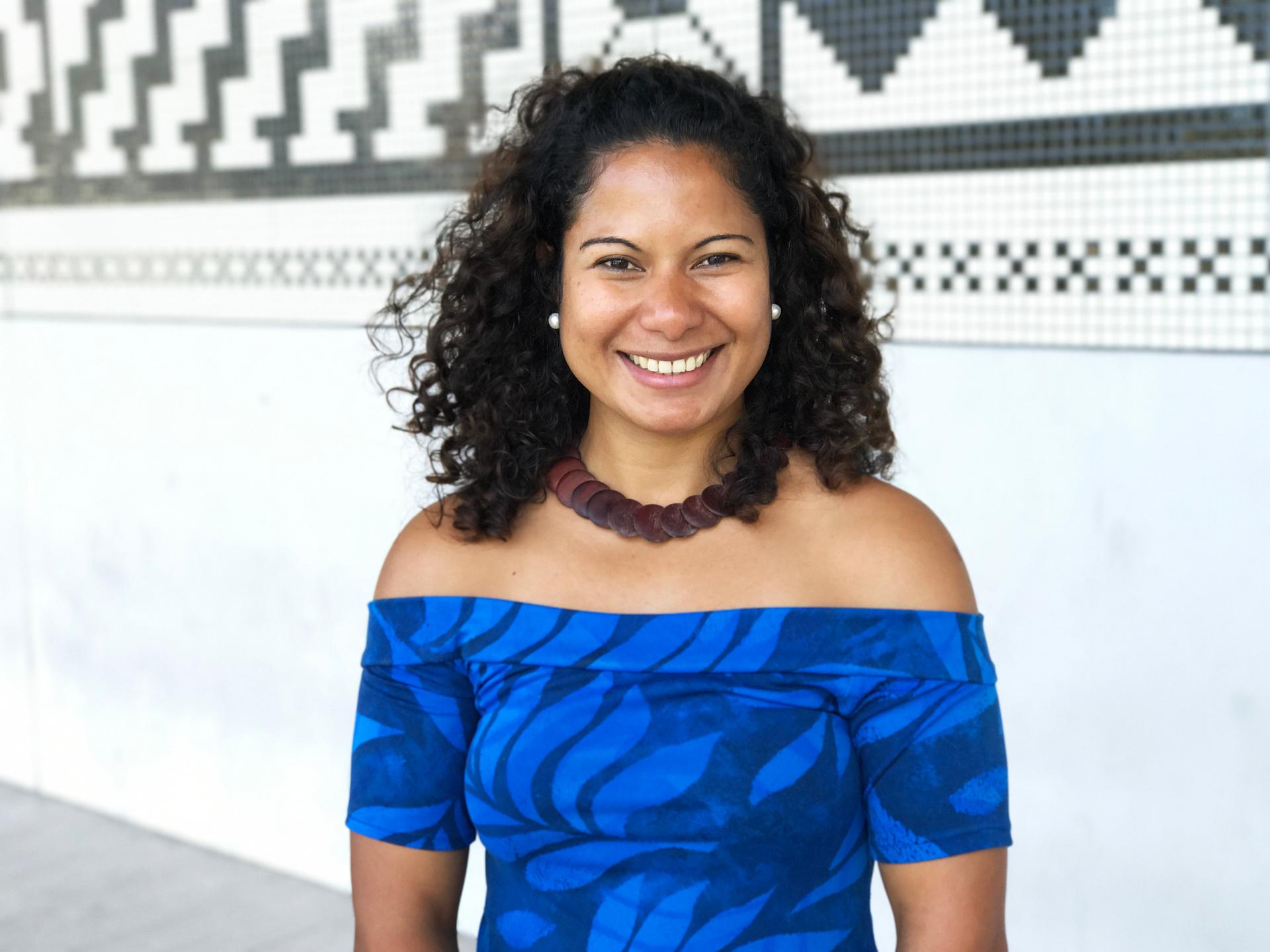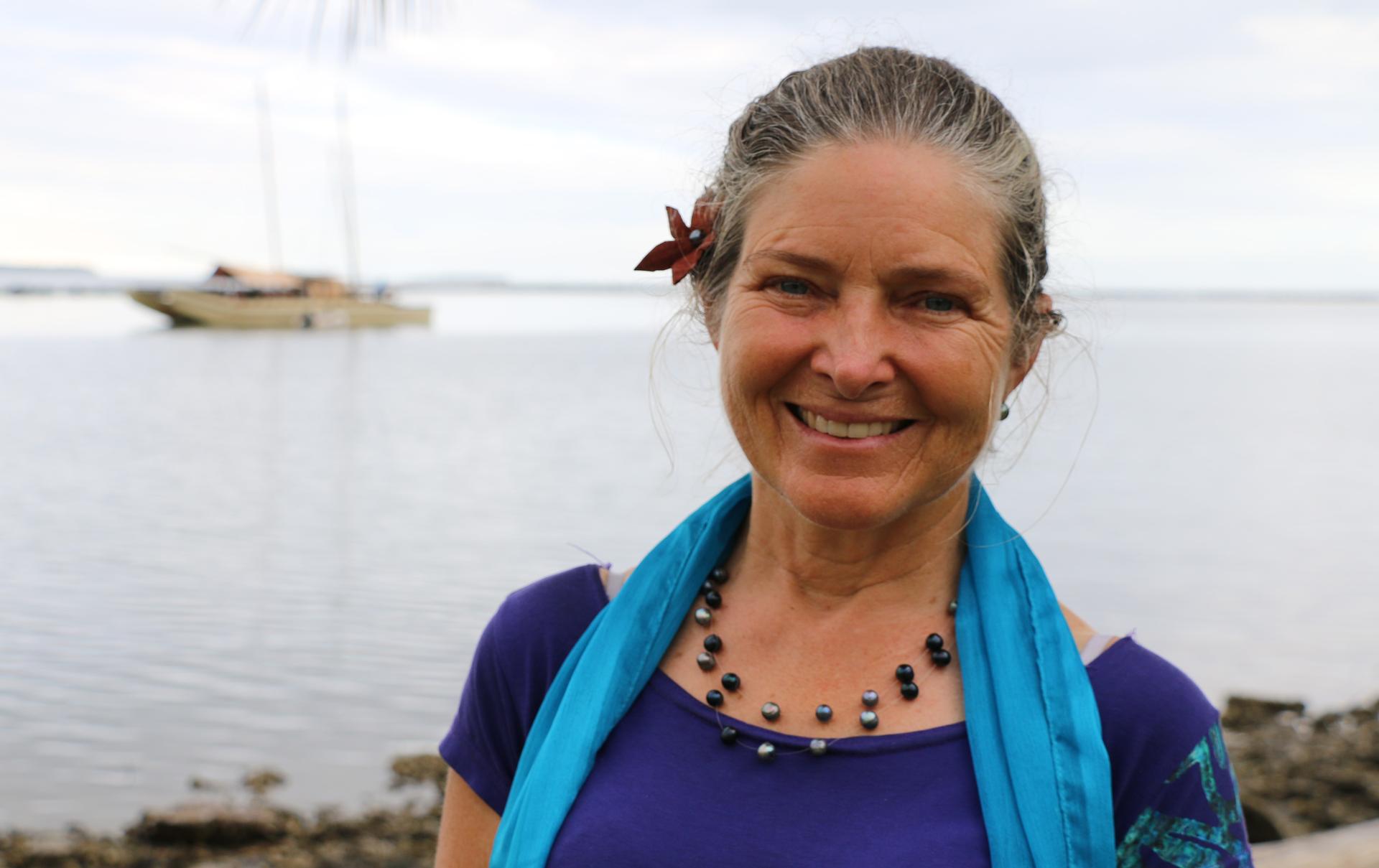An American scientist stands up for the Pacific Islands at UN climate talks
Elisabeth Holland heads the climate change program at the University of the South Pacific.
Elisabeth Holland's office at the University of the South Pacific in Fiji looks like a museum. There are woven palm leaf fans, wooden canoe replicas, a handmade Fijian cloth with a turtle design — all artifacts from her life here in the Pacific Islands.
But she grew up far from here — in New Mexico.
"I came from the desert," Holland says. "I first saw the ocean when I was 16."
These days, the ocean is central to her work as director of the climate change program at the University of the South Pacific. Based for years in Colorado, she once devoted herself to researching how the Earth's atmosphere affected ecosystems.These days, Holland is more focused on helping communities cope with extreme weather and rising seas.
"Some of Fiji's communities will become uninhabitable," she says. "It is truly an existential crisis. A third of our communities will need to be moved. The social dimensions of that are huge."
This week, climate change negotiators are meeting in Bonn, Germany, for high-level international talks at the COP 23 summit. The Pacific island nation of Fiji is presiding over negotiations, and Holland is standing by their side. Holland brings her acute scientific knowledge to the table. Last year, when Cyclone Winston roared through Fiji, she went straight to work trying to forecast the storm surge.
"I'm always very obsessive about finding every source of information I can," she says. "We kicked into high gear with our communications staff to make sure we had the best forecast information available, that people were taking precautions, that the schools knew when the storm surge would likely be arriving. There were whole schools that moved because my students read my posts on Facebook," Holland says.
Related: Fijians speak from the front lines of climate change
When she's not battling emergencies, she's heading up a program to develop climate change action plans for communities throughout the Pacific Islands. A big part of that is combining scientific and local knowledge. At the University of the South Pacific, in Fiji's capital, she also teaches basic climate science to students who often go on to key jobs in the region.

"It gives me the basics on understanding climate change and climate science," says Andi Davila Litiana Talemaimaleya, a student of Holland's.
"For me to be able to make a change in this country, I need to know these basics," she says. "[Professor Holland] is definitely an inspiration. She makes me sort of think out of the box. She's definitely a climate warrior and she's definitely someone I would like to become and try to emulate."
Holland's scientific curiosity about the world started early in life. "My father was an engineer and a scientist, so I had microscopes and test tubes by the time I was four or five," she says.
After high school, she studied science at Colorado State University — an undergrad degree in zoology, a master's degree in soil science, and a Ph.D. in ecology and environmental sciences. As she pursued her career, she also pursued her love of adventure and the outdoors: rock-climbing, whitewater kayaking; she was even a glider pilot for a while.
Holland was on the team of scientists who won the 2007 Nobel Peace Prize for their climate work. But her transformation to climate warrior came a few years earlier, when she was still living in the US.
"Friends of mine, three families, were skiing in the backcountry of Colorado," she says. "And it was on a snowpack that could only happen with climate change. And one of my friends was killed, and the whole rest of the party was traumatized in some way."
Holland says she couldn't deny the connection between climate change, that snowpack and the death of her friend. There'd been a series of unusual freeze-thaw cycles that made the snowpack extremely unstable.
"I knew then that I needed to be able to do something," she says. She decided to work hand-in-hand with communities on climate resilience instead of just doing the science. She began supporting indigenous groups that are often left out of climate change discussions, including Native American tribes in the US.
"What I had learned is that very often those who are facing climate change, who are at the frontlines of climate change, don't have a voice in the science," she says. Her desire to change that is what ultimately led Holland to upend her life in Colorado and move halfway around the world to Fiji. Holland's students and colleagues have seen this prominent American scientist slowly transform as she embraces her new life in Fiji. When she speaks now, she speaks on behalf of Pacific Islanders. This week, she's representing the region at the UN climate change summit in Bonn.
"You can tell that her heart is here in the Pacific and she fights very hard for the Pacific Islands," says Tammy Tabe, a fellow climate change lecturer at the University of the South Pacific.

"Despite her being an American, I think her standing together with the Pacific Islands during these negotiations really has a greater impact," Tabe says. Holland herself hopes some Pacific-style diplomacy might rub off on world leaders at the summit.
"Pacific-style diplomacy is really extraordinary," Holland says. "Well, American culture is very direct. And people tend to, if they want something, they ask for it directly. In the Pacific, because people spend much more time thinking about how all of the connections work, they may be much, much more successful," she continues.
Holland certainly spends plenty of time forging those connections herself. At the climate change event on campus, she mixes right in with her purple Fijian dress, then goes to the end of the line for a plate of traditional Fijian food.
This story was reported with support from the International Women’s Media Foundation.
